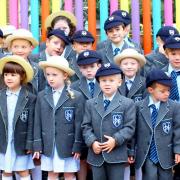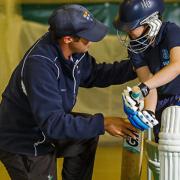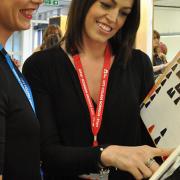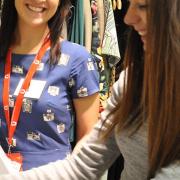Marks Nicholls looks at the role of a school governor within an independent school.
A supporting role
Mark Nicholls looks at the role of a school governor within an independent school.
It is a role that brings with it rewards and satisfaction. But being a school governor also adds an extra dimension to the expertise available in the running of an independent school.Governors bring outside skills to an educational setting, offer support and advice to a headteacher and also shape the future strategy of a school.Some governors are from professional backgrounds with legal, accountancy or surveying skills, or have experience in education – such as teachers or retired heads – while others are parents of children who want to play a greater role in shaping the way the school is run.
Headteachers are very aware of the important role a skilled board of governors can play in helping run an independent school, while governors acknowledge the effects their input can have on the school environment and the learning experience of pupils.
Headteachers at independent schools see their boards of governors as adding to the running of their schools in a number of ways.As well as their expertise and experience they are a “sounding board” for new ideas, while also bringing in fresh and innovative suggestions of their own.
John Crofts, headmaster of Glebe House School and Nursery at Hunstanton, which has 90 pupils aged four to 13 in prep and pre-prep and 65 nursery pupils, says: “When I became headmaster it was after a career based on teaching, but from then on you become responsible for many other areas, such as finance, hiring and firing staff, a whole raft of legislation, health and safety and other areas. “This is where the governors help. I have a chair of governors who can bring scrutiny to the accounts; there is a pharmacist who can help on medical issues, and an estate agent who understands the world of property, which is useful when renegotiating leases.
“Whether it is legal, financial or property, I have someone – who is not going to cost – who can give advice and also advise on a strategic basis.”The governors can also be supportive in other ways. As Mr Crofts adds: “Being a head can sometimes be a lonely experience. You can’t always share everything with colleagues, so with governors it is nice to have somebody to ask what they think.”
He says having governors from an educational background too is invaluable because of the specific experience they bring. But governors also take an interest in the day-to-day running of the school. They will sit in on lessons and view things from an “open eyes” perspective, rather than just an educational point of view.
Stephen Crump, headmaster of the 200-pupil Hethersett Old Hall School, recruited new governors over the summer. He says: “We try to find people who have an interest in the school but also good experience in a professional background, whether that is financial, legal or educational. It is about enhancing the spread of experience available to the school.”
With most independent schools being charitable trusts, a governor’s role is as a trustee of a legally-constituted board of the trust and also to plan the strategic objectives of the school, ensure its financial health and that the school conforms to legal requirements. He adds: “I would say there are two main rewards for governors; they have an enormous sense of achievement when they see young people doing well, and secondly they are extending their range of skills.” Governors come from a range of backgrounds: they can be parents, a figure in the local community, professionals or retired people with relevant experience. Several have an education background and offer independent schools knowledge acquired over a lifetime in schools.
Craig Wardle is a school governor who is in a unique position to appreciate the role. He is owner-proprietor and headmaster of St Nicholas House School at North Walsham, an independent school with 100 pupils aged three to 11. And while his school does not have a board of governors, he is a governor at a state school – Swanton Abbotts primary school – and a member of the recently-formed board of governors at the independent Sacred Heart Convent School in Swaffham.
He says: “A board of governors can bring experience to a school.”He explains that generally they will attend a governors’ meeting once a term and also meetings of the sub-committees they sit on.“In an ideal world a governor would be in school at least once a term during the working day and be seen to be familiar with how the school works, meet staff and parents,” he says.
The board of governors was formed at the Sacred Heart Convent School earlier this year and will hold its second meeting in September.Mr Wardle believes being a governor is about “sharing experience and bringing in skills” and while there is no payment for the position, there is broad satisfaction.
“The rewards are seeing a school going forward, from activities being introduced, problems being solved and new initiatives being implemented to seeing happy children.“People do not have to have children to be a governor, just a wish to help benefit future generations. And it is not always about making big and difficult decisions; there are lots of lovely decisions that governors take, such as how to spend money on improving the school playground. It is so rewarding to see something that is appreciated by the children.”
For the past year Chris Tyler has been chair of the board of governors at Glebe House School in Hunstanton, having joined the board in 2005.Although he has two children at the school – Florrie, six, and Sammy, four – he keeps his roles as parent and governor separate. He is commercial finance director at Porvair in King’s Lynn and was invited to join because of the finance skills he could bring to the governance of the school.
Mr Tyler says: “Another reason was that we had recently moved up from London to live in west Norfolk and I felt that I wanted to do some charity work and give something back to the community. This was something I felt I could do as well as doing my day job.“With a board of governors, it is about building a balanced group of people to bring good commercial guidance to the school, as it is essentially a small business that has revenue streams, employment costs and building facility costs.
“I get the same sort of satisfaction from being governor at Glebe House as I do from my day job; seeing thing progressively improve and be professionally run. If things run smoothly, the school is likely to be successful.”
The balance of the present board includes his role as chairman with an accountancy background; a pharmacist who is also strong on child protection and health and safety issues; a former school bursar and a retired prep school head, and someone involved in the property business.The Association of Governing Bodies of Independent Schools (AGBIS) represents the interests of the governing bodies of independent schools and also offers support, an advisory service and running training seminars for governors and can advise would-be governors of their responsibilities and commitment.
General secretary Shane Jerome-Rutter comments: “Our purpose is the advancement of education in independent schools and our main issue is promoting good schools governance in the independent sector.”In addition it runs training for new school governors, chairmen of governors, finance governors, clerks to governors and publishes a manual of guidelines as well as providing on-site training.“We are also there to offer advice on issues if they arise, or hopefully before they arise,” he said.
For more information on becoming governor at an independent school, visit www.agbis.org.uk or call 01722 782900.


























